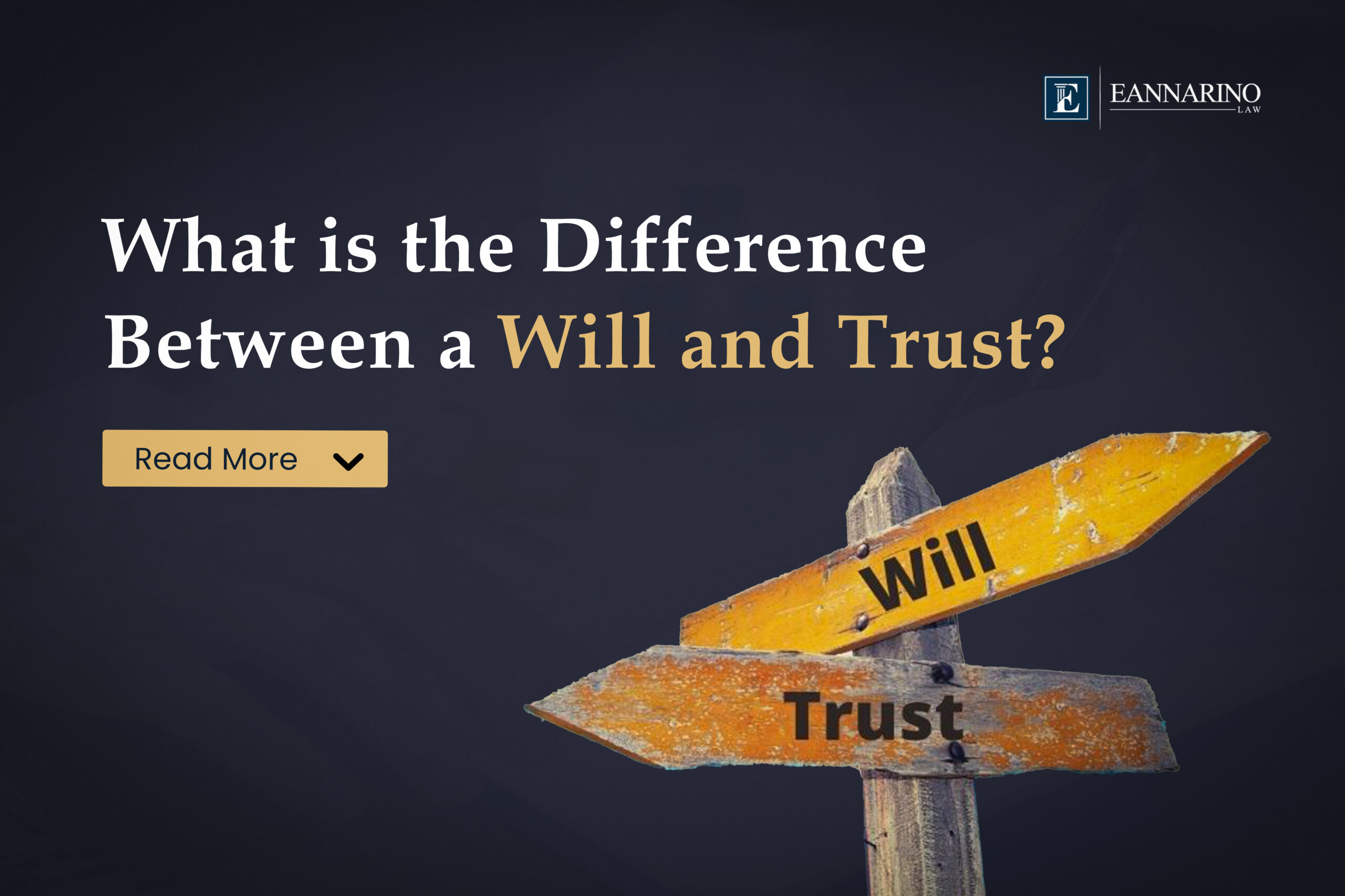
Estate planning involves more than just financial assets – it’s about safeguarding your legacy and loved ones’ futures. Estate planning can be tricky, especially when deciding between a will and a trust. Essentially, a will outlines how you want your assets distributed, but it only works if you own something tangible at the time of your passing. A trust can divvy up your assets, saving your loved ones from dealing with probate court red tape. Takeaway: making this choice correctly has significant consequences. Imagine having two ace team players – that’s what you get with these tools, each shining in their own way to drive results. Imagine having clarity on the best estate planning strategy for your family’s unique situation. That’s exactly what we’re about to deliver – a breakdown of the options that will illuminate the path forward.
Introduction
Estate planning can seem overwhelming, but knowing the difference between a will and trust can make it much easier. Want to avoid family feuds and ambiguity after you’re gone? These legal documents are your best bet. They provide a clear plan for distributing your assets, just as you envisioned. Let’s size them up and see what puts the wow factor in each.
Understanding a Will
A will is a legal document where you spell out how you want your assets distributed after you pass away. Not only can you do this, but you’ll also have a say in who raises your children if you’re no longer around, and even get to plan the kind of farewell you’d like.
Legal Requirements
For a will to be legally binding, it needs to be signed and witnessed. The requirements can vary by state, but generally, it must be in writing, signed by the person making the will (the testator), and witnessed by at least two people who do not stand to inherit from the will.
Probate Process
Wills have to go through probate, which is a court-supervised process to validate the will and oversee the distribution of the estate. This process can be time-consuming and expensive, but it ensures that all debts are paid and the remaining assets are distributed as specified in the will. This aspect is a key difference between a will and trust, as it affects the time and cost involved in settling an estate.
Understanding a Trust
A trust is a fiduciary arrangement that lets a third party, or trustee, hold assets on behalf of beneficiaries. Trusts can be structured in many ways and can specify exactly how and when the assets pass to the beneficiaries.
Types of Trusts
There are revocable and irrevocable trusts. Revocable trusts can be altered or terminated by the grantor during their lifetime, while irrevocable trusts cannot be changed once they are established. Recognizing these types of trusts and their specific functions is part of understanding the difference between a will and trust.
Avoiding Probate
One of the major benefits of trusts is that they usually don’t go through probate. This means that the assets can be distributed more quickly and privately. One major perk of clever estate planning is avoiding probate – it’s a huge weight off your shoulders, and those of your family and friends. If you’re estate planning, you’re probably wondering about the will-versus-trust conundrum. The key difference is that a will settles your affairs after you’re gone, while a trust safeguards your assets and ensures their smooth transition to your beneficiaries. Decisions about estate planning are often swayed by this single factor.
Looking to get your affairs in order? You’ll likely need both a will and a trust. But what’s the difference? In simple terms, a will outlines how you want your assets divided after you pass away, whereas a trust lets you hand over control of those assets to someone you trust.
It’s time to cut through the noise and zoom in on the core of the problem – that’s where the real insights await. Many people confuse wills and trusts, but they’re not interchangeable terms. A will is like a set of instructions that specify how your assets will be allocated after you’re gone, whereas a trust is more like a safeguard, allowing you to control and distribute your assets during your lifetime and beyond, while minimizing potential headaches for your loved ones. Effective estate planning depends on this one crucial element. Here are the main distinctions:
Probate
Wills must go through probate, while trusts typically do not. If you’re trying to wrap your head around estate planning, you’ve probably stumbled upon two important terms: will and trust. Here’s the lowdown: a will outlines your wishes for asset distribution after you’re gone, whereas a trust takes those assets and holds them in a safe, controlled environment for your loved ones. Imagine being able to pass on your legacy to loved ones without burdening them with expensive and drawn-out estate settlements. By taking control now, you can make that a reality.
Privacy
Wills become public record once they go through probate, but trusts can remain private. If privacy is a concern for you, a trust might be the better option. This privacy aspect is an important difference between a will and trust.
Control
Wills take effect after death, but trusts can manage assets during your lifetime and after your death. You’re no longer tied down – this method lets you make swift, informed decisions about your assets.
Pros and Cons of Wills
Considering the difference between a will and trust, it’s important to weigh the pros and cons of each.
Pros
- Simplicity in creation and modification.
- Ability to name guardians for minors.
- Directs the distribution of personal and real property.
Cons
- Must go through probate.
- Becomes a public document.
- Can be contested by dissatisfied heirs.
Trusts: are they the answer to your estate planning prayers or a recipe for trouble? To make an informed decision, you need to consider both the benefits and the pitfalls.
One thing’s for sure: trusts have their perks, but they also come with a few strings attached.
Pros
- Avoids probate.
- Maintains privacy.
- Can manage assets during your lifetime.
- Lays out a clear plan for dividing assets, step by step.
Cons
- More complex and expensive to set up.
- Regular upkeep is a must to keep things running smoothly.
- Getting this just right may call for some specialized know-how, so be prepared to seek guidance.
Choosing Between a Will and a Trust
Choosing between a will and a trust depends on your specific circumstances and goals. If you want a simple, straightforward plan, a will might be sufficient. However, if you aim to avoid probate and maintain privacy, a trust could be more beneficial. Often, a combination of both is used to create a comprehensive estate plan.
Consider Your Assets
When deciding between a will and a trust, consider the nature and value of your assets. Real estate, investments, and business interests may be better managed through a trust, while personal property and simpler assets can be effectively handled through a will.
Family Dynamics
Family dynamics play a crucial role in choosing between a will and a trust. If you have minor children, a will is necessary to appoint guardians. If you have a blended family or children from a previous marriage, a trust can provide more precise control over asset distribution.
How to Set Up a Will
Setting up a will involves several key steps:
Drafting the Will
Work with an attorney or use a reliable online service to draft your will. Don’t leave anything to chance – your plan should have three essential components: an executor to manage your estate, a clear plan for asset distribution, and arrangements for guardianship.
Signing and Witnessing
Sign your will in the presence of witnesses. Make sure the signing process complies with state laws to ensure the will’s validity.
Storing the Will
Store your will in a safe place and inform your executor of its location. Consider filing a copy with your attorney or a trusted family member.
How to Set Up a Trust
Setting up a trust involves more complexity than a will but offers additional benefits.
Choosing a Trustee
Select a trustee to manage the trust. This can be a trusted individual or a professional fiduciary.
Funding the Trust
Transfer assets into the trust. The foundation of a trust is solidified when you add the necessary funding. This critical move enables the trust to spring into action, doing what you created it to do.
Drafting the Trust Agreement
Work with an attorney to draft the trust agreement. Beneficiaries want to know how they’ll receive their share of the trust’s assets – this document provides the clear answers they’re looking for, covering the process from start to finish.
Combining a Will and a Trust
For many, the best estate planning strategy involves combining a will and a trust. Imagine having the agility of one tool and the horsepower of another – that’s what you get when you bring them together in a single approach.
Pour-Over Will
A pour-over will ensures that any assets not included in the trust are transferred to it upon your death. With this approach, your assets are looked after according to your precise instructions, no exceptions.
Building a solid plan requires considering all the moving parts. It’s about exploring every avenue, identifying potential roadblocks, and developing contingency plans to overcome them.
Think of a will and a trust as two pillars of a strong estate plan. Together, they provide a comprehensive approach that covers all your bases, giving you peace of mind. Having a clear plan in place can bring a huge sense of relief, knowing that your loved ones will be cared for exactly as you intend.
The grand finale is here. Take a moment to review the highlights, and you’ll find a treasure trove of actionable wisdom waiting to be applied to your own endeavors.
So you wanna know about Ever wondered what sets a will apart from a trust? Understanding the distinction between these two important estate planning tools can be a game-changer for your loved ones’ future. For a solid estate plan, clarity is everything – it all comes down to having a clear strategy. Imagine having two Problem-solving heavy-hitters on your side, each powering ahead in its own sphere of influence. Your assets, your way: that’s the goal of working with an estate planning attorney. By considering your unique circumstances and goals, they’ll help you create a personalized plan that honors your wishes.
Hit a snag with your estate plan? Don’t worry – our experts are just a call away, ready to offer sage advice and get you back on track. Get ready for a one-on-one consultation that Produces a results-driven plan tailored to your strengths, weaknesses, and everything in between.



